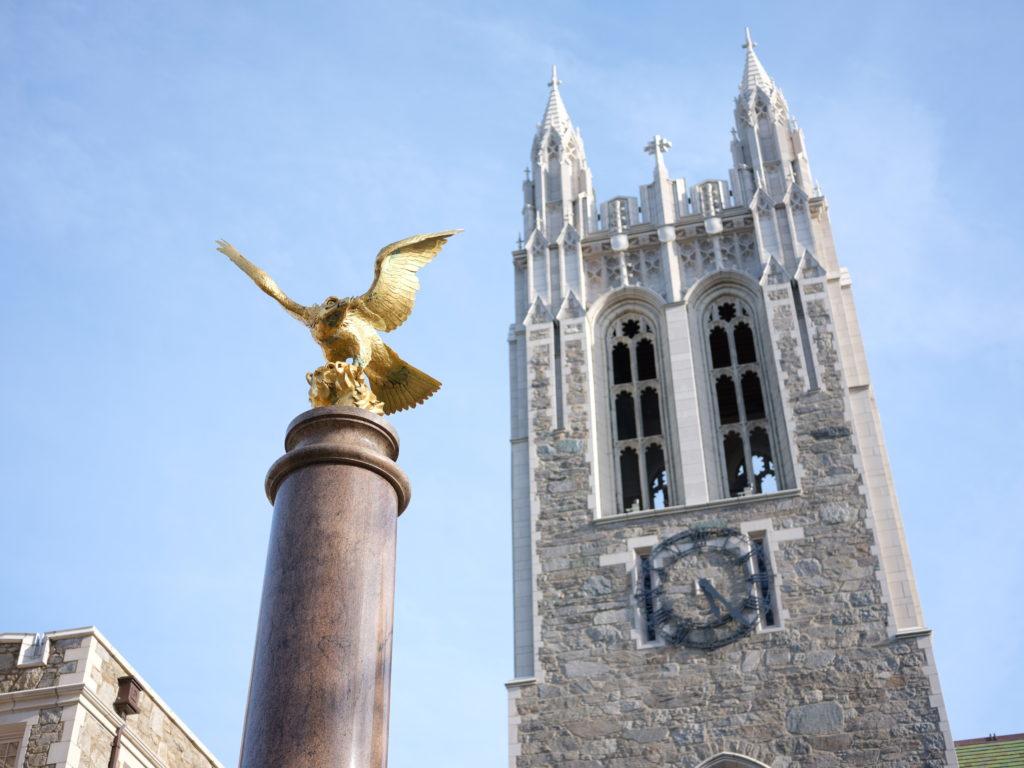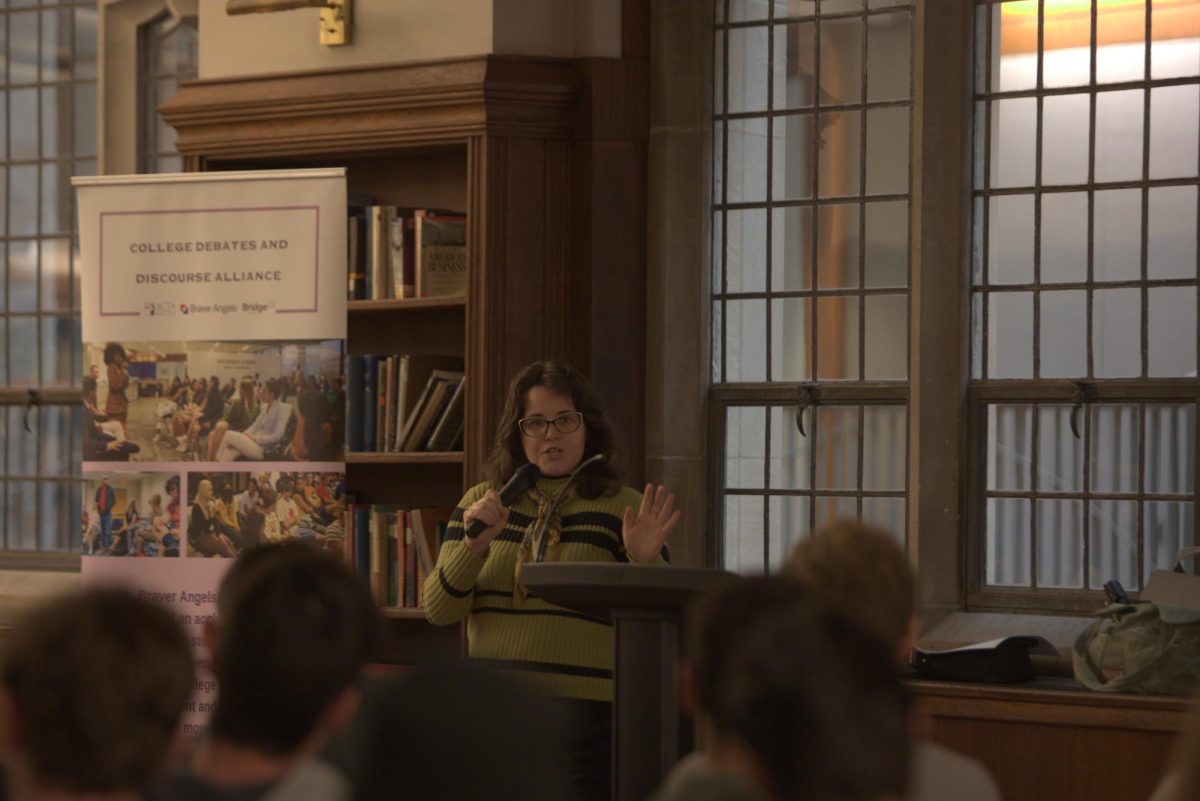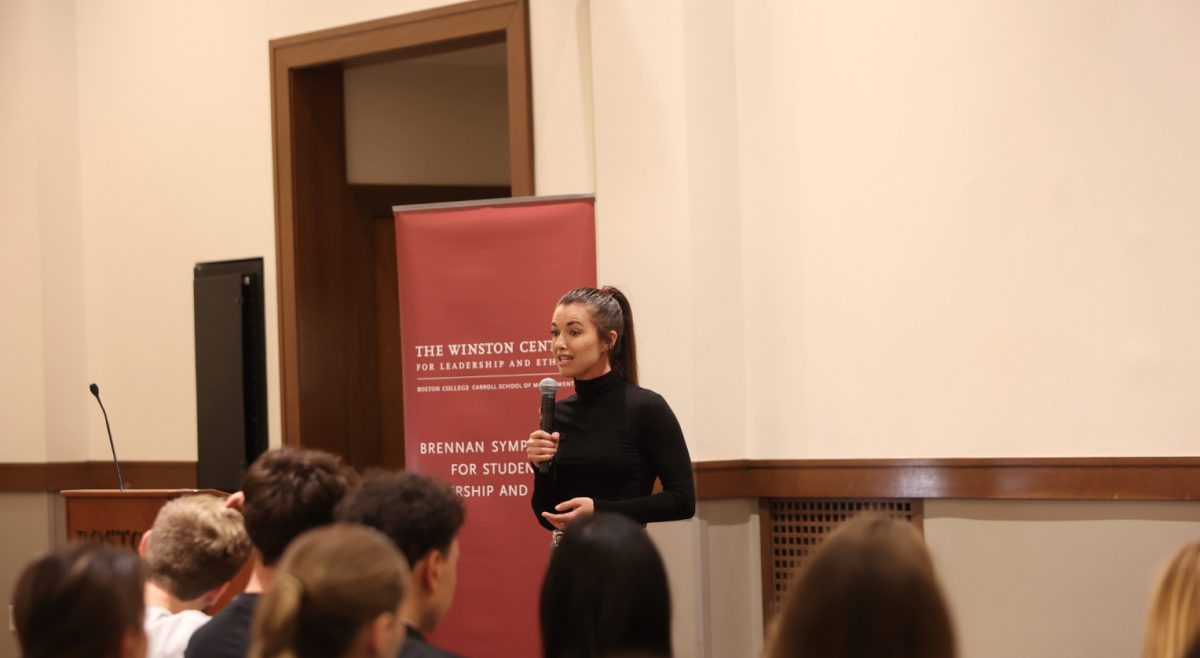Student government presidents at the United States’ 28 Jesuit colleges and universities, as well as St. John’s College in Belize and Campion College in Canada, announced the creation of the Jesuit Student Government Alliance (JSGA) on Oct. 5.
At this year’s National Jesuit Student Leadership Conference (NJSLC), which was held at Le Moyne College over the summer, the student government presidents sat together and discussed the similar issues plaguing each student representative and their respective universities—a conversation they found to be very constructive.
“We just realized that everything that we had done and were trying to do had a common thread at the other Jesuit schools,” said Reed Piercey, president of the Undergraduate Government of Boston College and MCAS ’19.
Deciding that they needed to have conversations of that sort more often, the presidents stayed in touch once they left the conference and eventually established the JSGA, which has since been approved as an official conference of the AJCU.
“What we’re going for basically … is to provide an official platform for Jesuit student governments to collaborate on ways that we can realize our mission and the missions of each of our schools, and just create more of an actual community among Jesuit student leaders around the U.S., and in Belize and Canada,” Piercey said.
To accomplish this goal, the JSGA plans to encourage all 30 presidents to attend NJSLC every summer, as well as establish a winter summit that they will attend every year.
The group has drafted a constitution that will be voted on and ratified in the near future, according to Piercey. The alliance also elected two co-chairs, Katlyn Martin of St. Louis University and Patrick Marta of Creighton University. The presidents of the 28 U.S. Jesuit schools have been divided up according to the five Jesuit provinces, each of which will have a regional chair. In addition to the NJSLC and winter summit, these chairs will be hosting two Skype conferences a year—one in the fall and one in the spring—for the presidents in their regions.
“There are these four, basically, conversations throughout the year, and then the rest of the time we’re going to just keep talking about kind of joint actions that we can take as student governments—different projects that we’ve been working on, different ways that we can help each other out,” Piercey said.
Piercey will be the chair for the Northeast region, which includes BC, Canisius College, College of the Holy Cross, Fairfield University, Fordham University, Le Moyne College, and St. Peter’s University.
“I’m really excited for [the JSGA], and not just because we all get along well, but because I think there’s actually real chance here to actually increase the effectiveness of UGBC and to get a better understanding of what we could be doing, in relation to the other Jesuit schools,” Piercey said. “Some of them actually have gotten really far with a lot of the initiatives that we talk about but that we haven’t been able to make much progress on.”
The first issue that the JSGA, which hopes to begin operations within the next couple of months, is focusing on is divestment from fossil fuels. Only one member of the AJCU, Seattle University, has committed to divesting the marketable portion of its endowment from companies with fossil fuel holdings—which it did in September.
Piercey has discussed the alliance Vice President of Student Affairs Joy Moore, as well as University President Rev. William P. Leahy, S.J., who, according to Piercey, was generally supportive of the idea, but expressed concerns regarding whether the alliance might overlap with existing AJCU conferences and also whether it was meant to be a means of collaboration, and not a pressure valve on school administrations. Piercey said that the latter is not the organization’s intent.
“We just think we loved the conversation that we had at Le Moyne and we want to find a way to grow that into an official network that can benefit everyone,” Piercey said.
“This isn’t meant to be like a presidents club from the 30 schools. It’s meant to be something that we can bring back to each of our student bodies and use as a resource for anyone who wants to learn from their counterparts at other Jesuit institutions.”



















